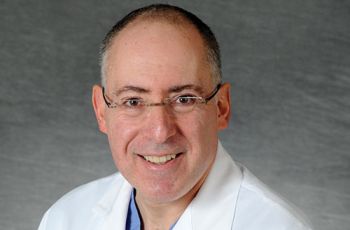Cardiology
Jonathan Reiner, M.D., professor of Medicine in the GW School of Medicine and Health Sciences and director of the Cardiac Catheterization Laboratory at The George Washington University Hospital is interviewed by a Connecticut NPR affiliate about new legislation that provides Good Samaritan…
When Tim Russert, the longtime moderator of Meet the Press, died in the offices of WRC-TV in Washington, D.C., he did not succumb to a “massive heart attack,” as some reports suggested.
Congressman Pete Olson Introduced the Cardiac Arrest Survival Act of 2011, H.R. 3511, that will establish a uniform base of liability protection for businesses that acquire AEDs and the good Samaritans who use them. The Cheney Cardiovascular Institute supports and applauds Congressman Olson's…
GW Cheney Cardiovascular Institute awards grants to advance research in the area of cardiology.
Cardiologists from The George Washington University’s Cheney Cardiovascular Institute, Dr. Cynthia Tracy and Dr. Marco Mercader, recently returned from a “health brigade” to Comayagua, Honduras.
Numerous studies and clinical trials have demonstrated that the use of Automated External Defibrillation devices (AEDs) can dramatically increase the survival rate of someone who suffers “sudden cardiac arrest,” (SCA), especially in high-density public places, such as shopping malls, hotels, sports…
The concept of “flow” is a defining characteristic for Ramesh Mazhari. As an interventional cardiologist, she is dedicated to restoring and improving patient blood flow to the heart. As a researcher, she has transitioned almost effortlessly from one new idea to the next.
WASHINGTON - DC Public Library users and employees are the recipients of improved emergency services with a donation of automated external defibrillators (AEDs) at all 25 locations, thanks to a gift from the George Washington University Cheney Cardiovascular Institute’s “ReStart DC” program.
Handheld ultrasound from new pocket-sized devices now allows cardiac imaging to be performed in locations previously inaccessible to traditional ultrasound. GW researchers have shown that high quality ultrasound heart images can be acquired in a remote setting and transmitted via the internet,…
A new study says that early adolescence is the time that patients with congenital heart disease should start preparing for the move from pediatric to adult medical care.
